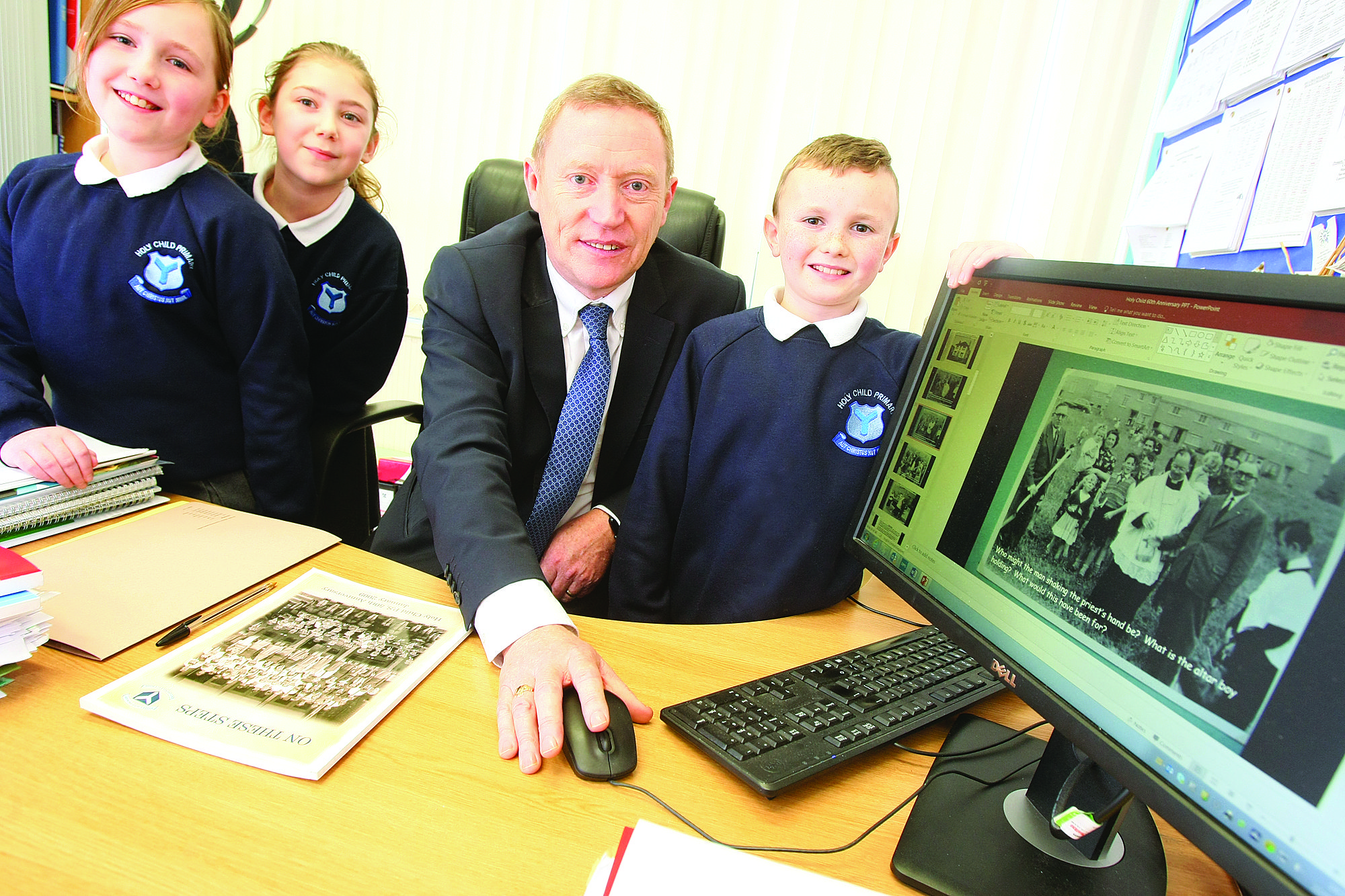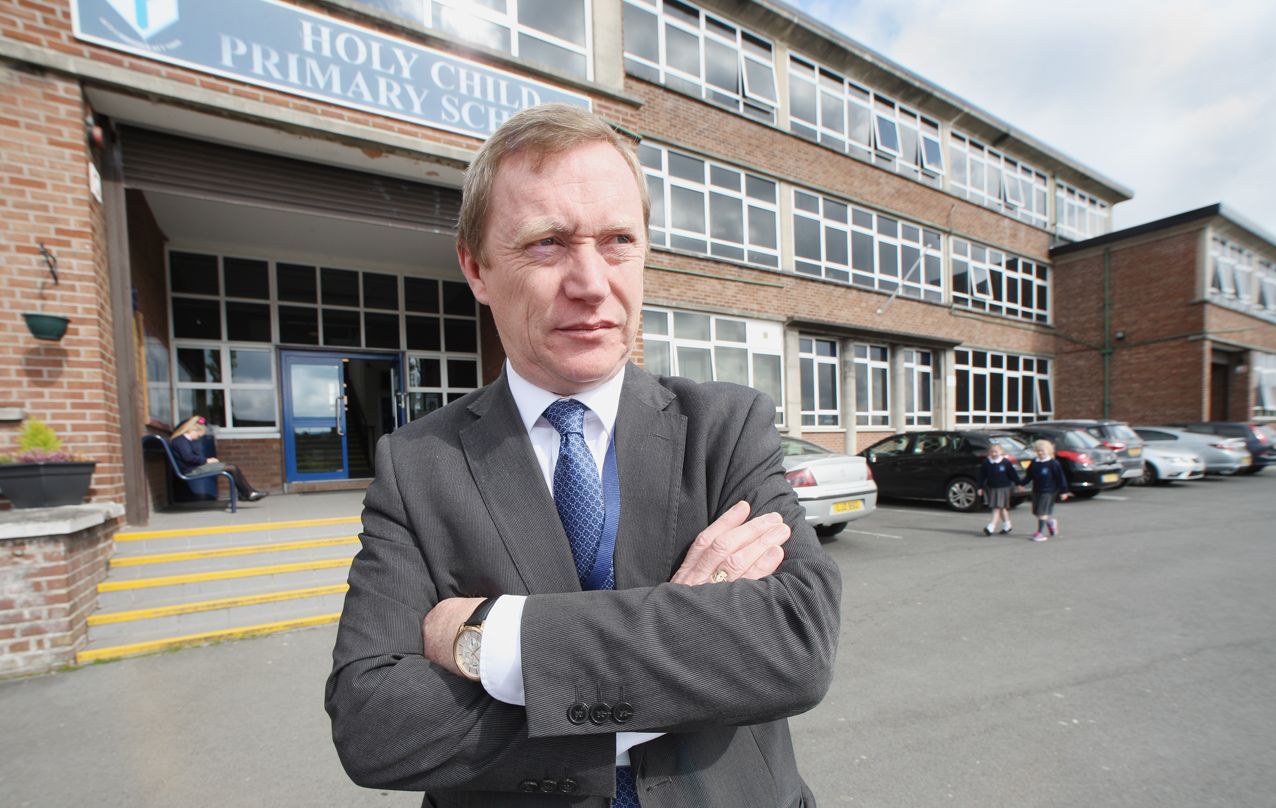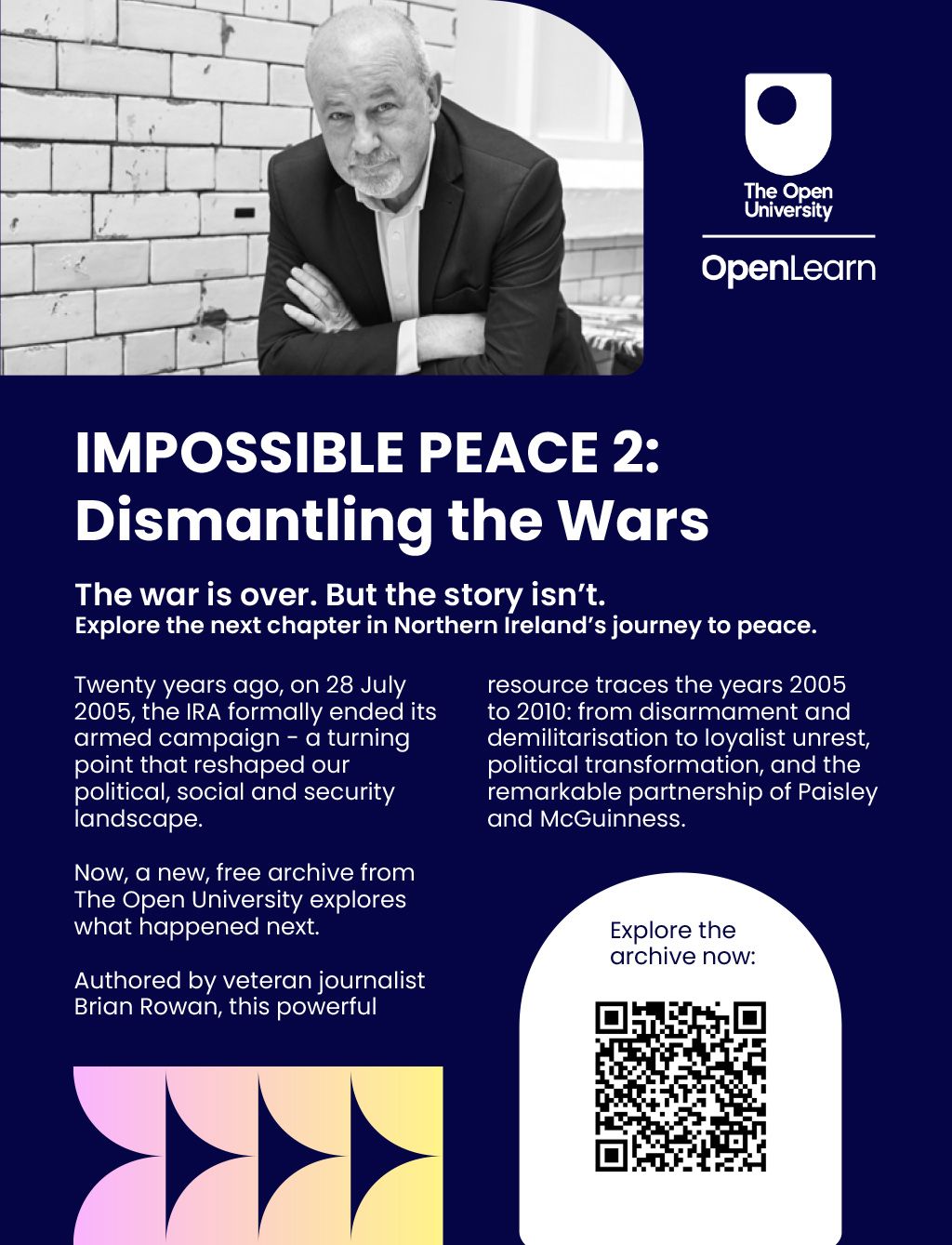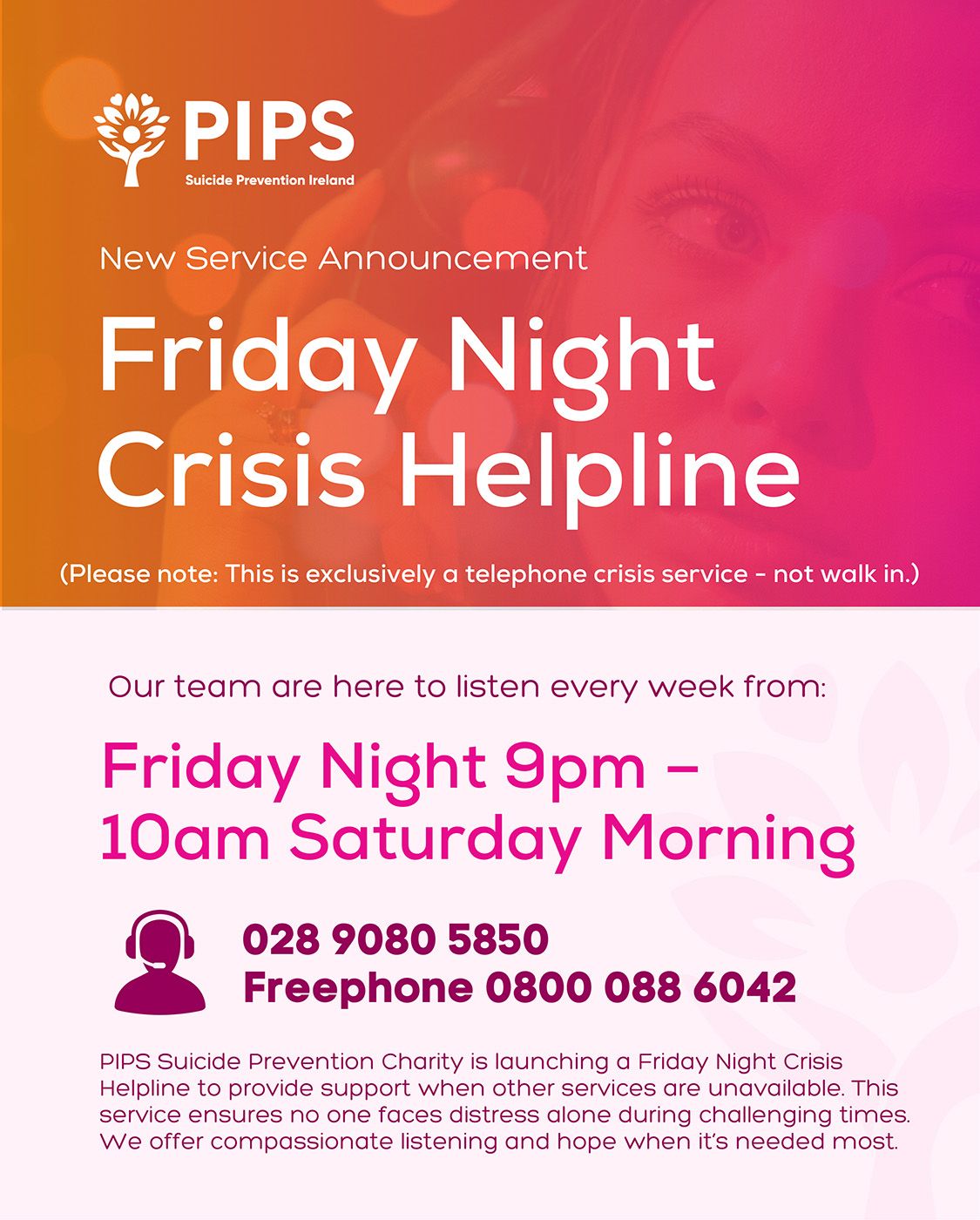THIS time last year I was asked to write an article on how schools and education would be affected by the New Decade, New Approach Deal that re-established the Executive at Stormont. In terms of schools and education, I wrote about school budgets and funding, the industrial action in schools (now resolved), provision for Special Educational Needs, eliminating underachievement in children’s attainment and the Transfer Test.
At the time of writing the article in January 2020, who would have known what was to transpire from March 2020 until now and what may await us all in 2021. Even though, the issues mentioned above are still being considered and are still of great importance, the big issue that has affected all our lives and in our schools has been Covif-19. It has taken precedence over everything we do from family, health, work, business, finances, culture, socialising and for our children’s education. EVERYTHING HAS CHANGED.
At the start of February, things changed for me as well, as I retired as Principal of Holy Child PS and work now as an Education Adviser to Principals and Boards of Governors for the Catholic Maintained Schools on behalf of CCMS (Council for Catholic Maintained Schools).
At the end of March 2020, society went into full lockdown. Included in the full lockdown, school buildings were closed and principals, teachers and staff had to act in an ‘emergency fashion’ and with great speed in order to organise some work packs for children to work at from home. These were organised in a way where schools had no knowledge of how long schools would be closed. In fact, it was to be the beginning of what we now know as Remote Learning. This was to be a steep and rapid learning curve for principals, teachers and staff on how best to cater for the children’s education. Parents, also, had to juggle the implications of lockdown on their daily lives, family routines, work commitments and at the same time, try to keep their children on task with their work packs and home learning.
PUPILS FIRST POLICY: Martin Short in 2019 with Caoimhe Cullen, Katie-Ann Britton and Odhran McArdle looking at a photo of the turning of the first sod in 1959.
It soon transpired that schools were going to be shut for longer than first anticipated and schools began to adapt on how they could best support the children and parents at home. The Education Authority, along with CCMS, ETI (Education and Training Inspectorate), C2K (the body that manages the schools’ computer systems), CSSC (Controlled Schools Support Council) and CCEA worked together in order to support schools in managing the very difficult scenario of Remote Learning.
However, over a period of time, by the end of September, it was evident, that Covid-19 was beginning to affect schools. Principals, under the instruction of the Public Health Authority (PHA), had no option but to close down bubbles, where there were positive cases. The pressures within schools have never been experienced like it before.
Schools, very quickly, adapted, as best as they could, to online learning through websites, class page activities and platforms such as Seesaw, Google Classrooms and other communication tools. C2K did a magnificent job, a mammoth task against the shortness of time with so many schools to accommodate, in training as many teachers as possible in using these technologies, a task so great that some schools were unable to avail of training until the summer months.
The schools stepped up to the plate magnificently. However, many schools had to manage this in very difficult circumstances. All schools had their own different circumstances regarding Remote Learning. Budgetary pressures, many years of underfunding, fewer opportunities for training because of the impact of industrial action and problems with connectivity to wifi in many rural areas ensured that the organisation of Remote Learning was no easy task. In fact, the complexities of organising Remote Learning was something that was never talked about in the media and just how good a job the schools did in organising it. C2K was excellent in providing training for the schools under tremendous pressure. Throughout all of this, schools also provided support for vulnerable children and children of key workers during this period.
Parents also found Remote Learning very difficult. It was difficult when parents were trying to either go to work or work from home (normally on a computer) and then possibly three children also having a daily schedule of online learning to complete. This would entail multiple devices being needed at any one time. Other families struggled with no access to ‘devices’. I believe that the only saving grace for some parents was the good weather over those weeks.
The children had to put up with not seeing their friends, some having little or no space to play and some missing that vital meal in school. This, as well as having to complete work pack, website or online learning activities at home, could only be described as stress! The worry of how all this would affect children mentally and educationally has been well documented.
However, many examples of brilliant work and achievement took place over these weeks and the dedication and vocation of the principals, teachers and all the school staff should be commended. Many principals and teachers have told me that teaching in a classroom is much easier for them than organising Remote Learning, much easier for parents and much more beneficial for the children and that their preference would always be that the children are in school.
Schools then returned early in August, when the rates of infection were lower. The return to school had to be organised, over the summer months, to make them compliant with the Covid-19 guidance, as directed by the Department of Education. Many principals and staff worked tirelessly over the summer, with many getting very little or no summer break, in order to organise the children returning safely to school.
However, over a period of time, by the end of September, it was evident, that Covid-19 was beginning to affect schools. Principals, under the instruction of the Public Health Authority (PHA), had no option but to close down bubbles, where there were positive cases. Some classes may have had to self-isolate more than once and from my work, as an Education Adviser, very few schools have been unaffected by Covid-19. The pressures within schools have never been experienced like it before.
The stresses on principals, teachers, staff, parents and pupils have been unprecedented and I know, as a retired principal, just how much this has taken out of the principals, teachers and staff in trying their very best to educate and care for the children in as safe a way as possible. In my opinion, schools have been the unsung heroes of this pandemic.
Parents have also had very stressful times and all any parent wants is the best for their children. They want them to learn and be happy in their learning and parents have been very supportive of the schools and the efforts in providing the best for their children.
Sometimes, it is easy to compare one school to the next but it needs to be said that all schools are different, have different circumstances and different complexities. But they all have one thing in common. They all want to do their best for the children.
At the moment, there is debate on whether schools should reopen or revert back to Remote Learning or to go to Blended Learning (a mixture of face-to-face and home learning). That’s a question that I can’t answer. However, all that I can ask of everyone, those in government, in Education, parents, the media and society as a whole, whether schools are open or whether the children are educated through Remote Learning, is SUPPORT YOUR LOCAL PRINCIPAL, SUPPORT YOUR LOCAL TEACHERS and SUPPORT YOUR LOCAL SCHOOL STAFF.
Martin Short is the retired principal of Holy Child primary school in Andersonstown and continues to work as an educational adviser.





